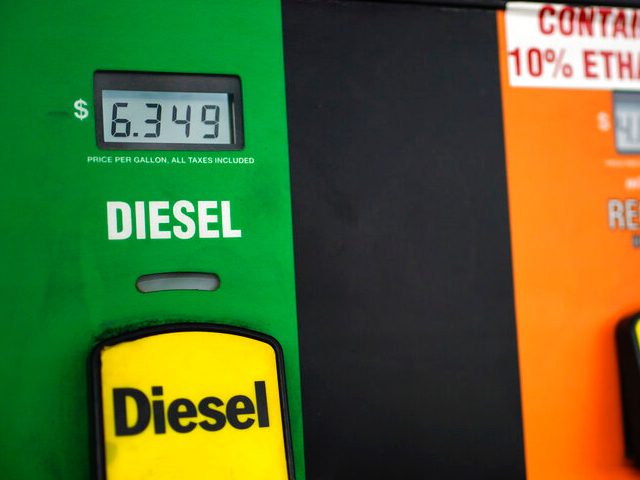The cost of diesel fuel — used by farmers and truckers to supply Americans with the products they need — has increased 75 percent over the past year.
The national average for diesel fuel is $5.61 a gallon, according to the American Automobile Association’s (AAA) May 16 report.
Fox Business reported on the ongoing pain for American consumers at the pumps, especially within the Northeast region of the country:
Prices are even steeper in the Northeast region because it has fewer refineries than the rest of the country: In New York, for instance, prices are as high as $6.51 per gallon – a stunning 102 percent increase from one year ago.
Fox reported that instead of returning to the domestic fossil fuel abundance — and low gas prices — enjoyed under former President Donald Trump’s administration, his successor, Joe Biden, is turning to use energy reserves stockpiled in case of war or other national emergencies:
White House officials have readied an emergency declaration that would allow President Biden to release diesel from the Northeast Home Heating Oil Reserve in order to deal with short-term supply shortfalls if conditions further deteriorate.
…
The Northeast Home Heating Oil Reserve, which was created in 2005, consists of about 1 million barrels of diesel, roughly a day’s worth of supply in the region. The reserve has only been tapped once before, in the aftermath of Hurricane Sandy in 2012. The White House official said the Biden team understands tapping the reserve may not substantially reduce diesel prices, but could prevent spot outages that would be “highly disruptive to families and businesses.”
Bob Costello, the chief economist with the American Trucking Association, said in an interview with National Public Radio (NPR) that these rising fuel costs are not just hitting truckers but consumers as well. “Ultimately, you and I, as consumers, will see this on the store shelves in the price of the products,” Costello said.
NPR interviewed Mark Darrington, who runs a farm in Idaho.
“My increased costs of production have got to be passed on to the consumer,” Darrington said in the interview. “Otherwise, literally, the countryside will shut down.”
Follow Penny Starr on Twitter

COMMENTS
Please let us know if you're having issues with commenting.